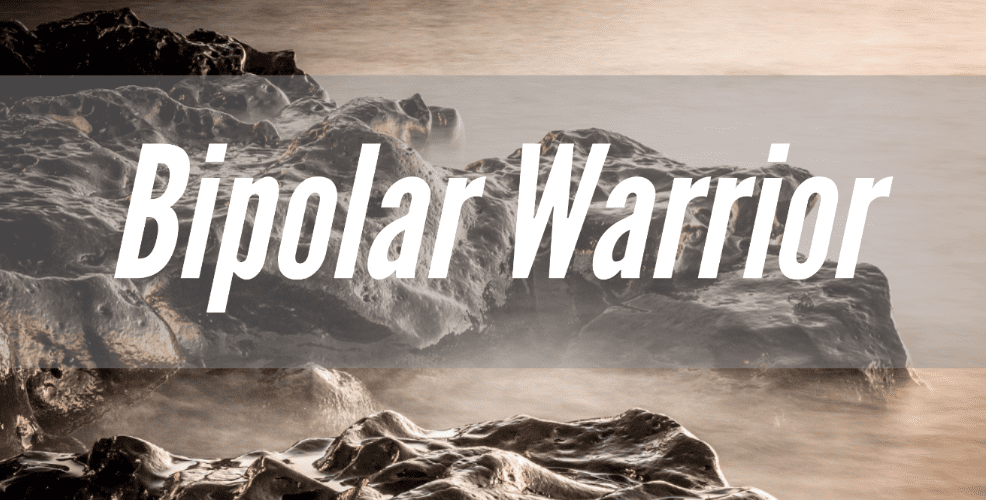I am an avid Instagram user. I love taking photographs of everything, whether its my meals, my outfits (aka #ootd – outfit of the day), my travels or my outings. Just in case youre not familiar with the app, on Instagram, the user can include a brief bio at the top of his or her page. I’ve seen users include links to their websites as well as use adjectives and identifiers that capture who they are. My bio reads: “Auntie Extraordinaire. Educator. Foodie-in-Training. Bibliophile. Traveler. Proud Nerd. Future Social Worker. Bipolar Warrior. Blogger.”
Recently, a friend, who also lives with mental illness, asked me what I mean by calling myself a “Bipolar Warrior.” I took a day to really think about my answer before I responded. I had to breakdown my own thinking process before I could offer her an answer that I felt would sufficiently convey what I mean when I claim the label Bipolar Warrior.
I’ve written about mental health labels before, but since then, my thinking on the issue has evolved even more. My Instagram bio used to say “Bipolar Sufferer.” When discussing my own mental health, I would tell people that I “suffer from bipolar disorder.” However, as a result of 1) the people I have met through blogging over the last two and a half years about my mental health journey, 2) taking part in a Facebook support group for women of color dealing with mental illness, and 3) taking my graduate school classes for social work, I have been exposed to other viewpoints and other ways of talking about/accepting/understanding one’s mental health and well-being. So I reflected on my word choices and I did not like the negative connotation of the word “suffer.” Yes, bipolar disorder, specifically the mania, has wreaked havoc on my life throughout these last nine years. I have racked up tens of thousands of dollars in credit card debt, I have damaged friendships, and I have made impulsive decisions. Yet, it has not all been bad as I have learned a lot about myself and grown from every manic and depressive episode. I am on the path to a new career. I have learned to accept the good with the bad. Isn’t that life, after all, whether one has a mental illness or not?
Now, instead of “suffer from” I say “I live with bipolar disorder.” I heard a few people say this online and in real life and I liked the confidence with which they said the phrase. Living is both hard and easy. Thus, living with mental illness has its ups and downs, like life in general. I love the balanced view that is portrayed through using words like live and warrior when describing how I manage having bipolar disorder, instead of the pessimistic descriptor of “suffer.”
Once I decided to stop using “suffer,” I had to change my social media bios. “I live with bipolar disorder” was too long a phrase to use in the bio, so I needed something catchier. And “Bipolar Warrior” was it. For me, warrior connotes bravery in the face of obstacles. I’d like to think that I’m brave for publicly telling my mental health story. I realize that not everyone has that opportunity, for various reasons. However, I have chosen to tell my story, through blogging, to help dismantle the stigma around discussing mental health and wellness, to show that people of color are also impacted by mental illness, and to normalize these conversations. Additionally, I want to show people that “normal” is relative. I work. I go to graduate school. I date. I live my life. I also happen to have a label. In short, the “Bipolar Warrior” label is about claiming all of this for myself – claiming my mood instability as part of me, alongside my stability and life in recovery. Bipolar disorder is a permanent part of my life, but it is not the only part of me.
See the rest of Krystal’s posts for IBPF here. She also blogs at Manic Monique’s Meanderings and for the Huffington Post
The content of the International Bipolar Foundation blogs is for informational purposes only. The content is not intended to be a substitute for professional medical advice, diagnosis, or treatment. Always seek the advice of your physician and never disregard professional medical advice because of something you have read in any IBPF content.


